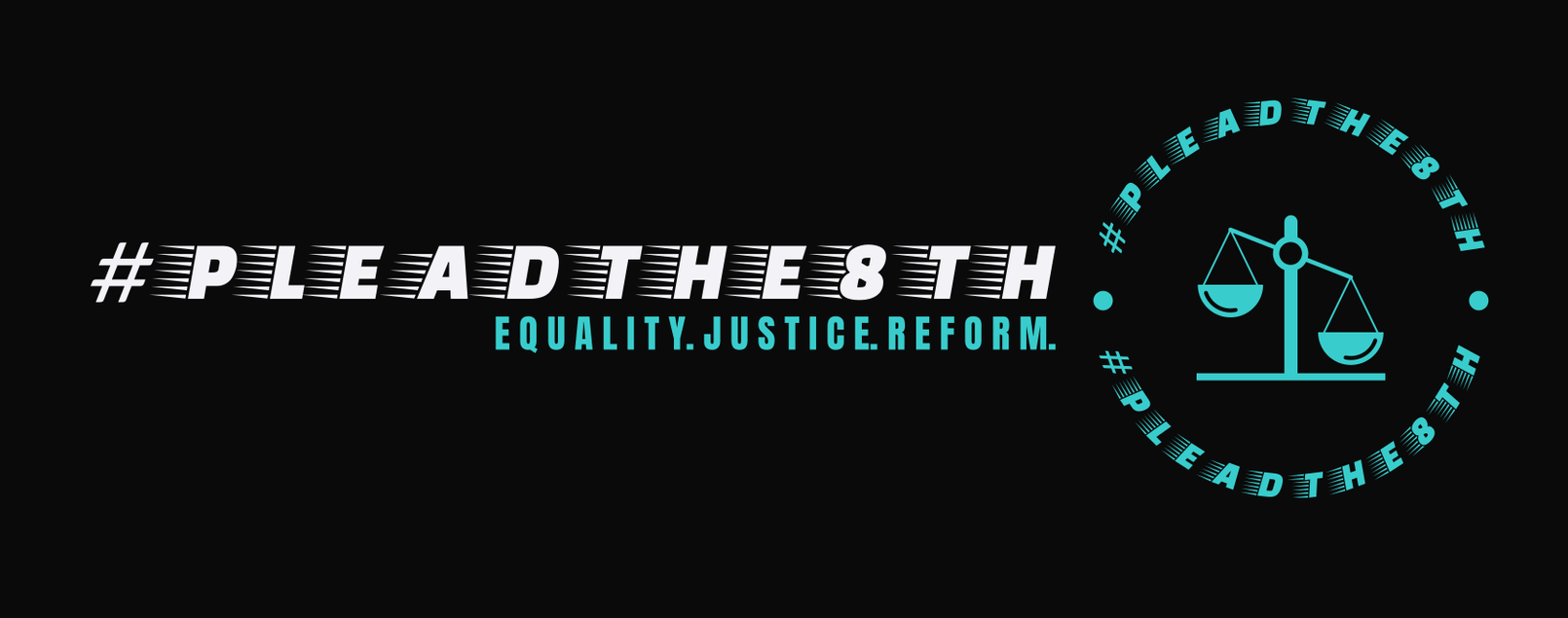Our Goals.
At PleadThe8th, our mission extends beyond immediate goals; we are committed to addressing a comprehensive range of issues that impact youth within Florida's criminal justice system. While our current initiatives focus primarily on two critical areas, our overarching aim encompasses a series of ambitious goals designed to advocate for the fundamental human rights of children. Here, we outline the key problems plaguing the system and propose solutions that align with international human rights standards.
Reform §921.1402 to Include a Review Mechanism for All Children.
Florida's juvenile offender review laws are limited and discriminatory, granting review hearings only to a specific group of individuals.
The law defines a
"juvenile offender" as someone under 18 who committed a crime
after July 1, 2014, leaving those who committed offenses
before
this date without the same opportunity.
Notably, post-July 1, 2014, juvenile offenders, including those sentenced to life, are eligible for review hearings. However, pre-July 1, 2014, offenders serving terms of years (e.g., 20, 30, 40 years) are excluded from this process.
This absence of a review mechanism or parole raises questions about equal treatment, particularly given the precedent set by the US Supreme Court's decisions in Graham/Miller, which emphasized the importance of review mechanisms for all youth.
This situation raises questions about fairness and compliance with constitutional standards, as well as the need for comprehensive reform to ensure laws are equitable and all youth have a review mechanism.
- Florida's current laws for juvenile sentencing reviews are not inclusive of every child who was under 18 at the time of their crime. §921.1402
- Florida's current laws allow children who committed crimes after July 1, 2014, to obtain a review hearing.
- Florida's current laws do NOT allow children who committed crimes before July 1, 2014, (with term of years sentences) to obtain a review hearing.
- There is no parole in Florida.
- Florida law states that a "juvenile offender" is "defined" as one who was under 18 and committed a crime on or after 7/1/2014.
- We MUST ensure equitable treatment, proportionality, and age-appropriate punishments for those currently incarcerated for crimes committed as children.
We will only achieve true public safety when we promote everyone’s well-being and when young people have the opportunity to show maturity and rehabilitation.
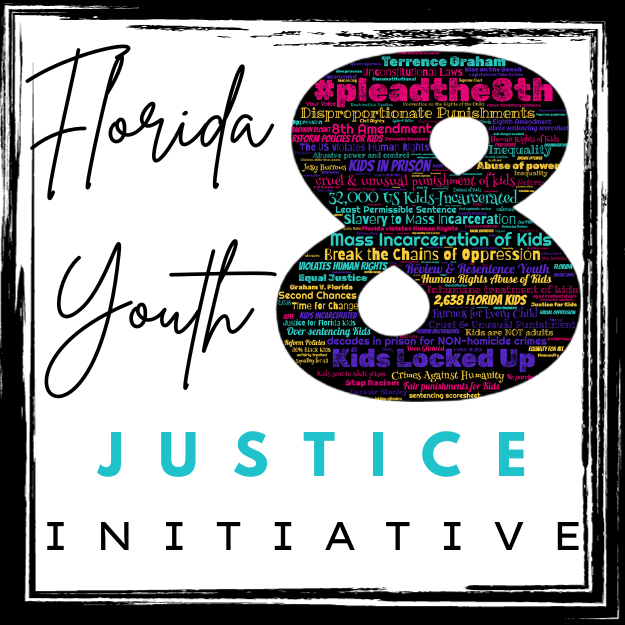
Our central policy advocacy goal for the 2025 Legislative Session:
Reform §921.1402-Reviews for Juvenile Offenders
- Review Mechanisms: ALL juveniles should have the opportunity for judicial reviews to demonstrate maturity and rehabilitation.
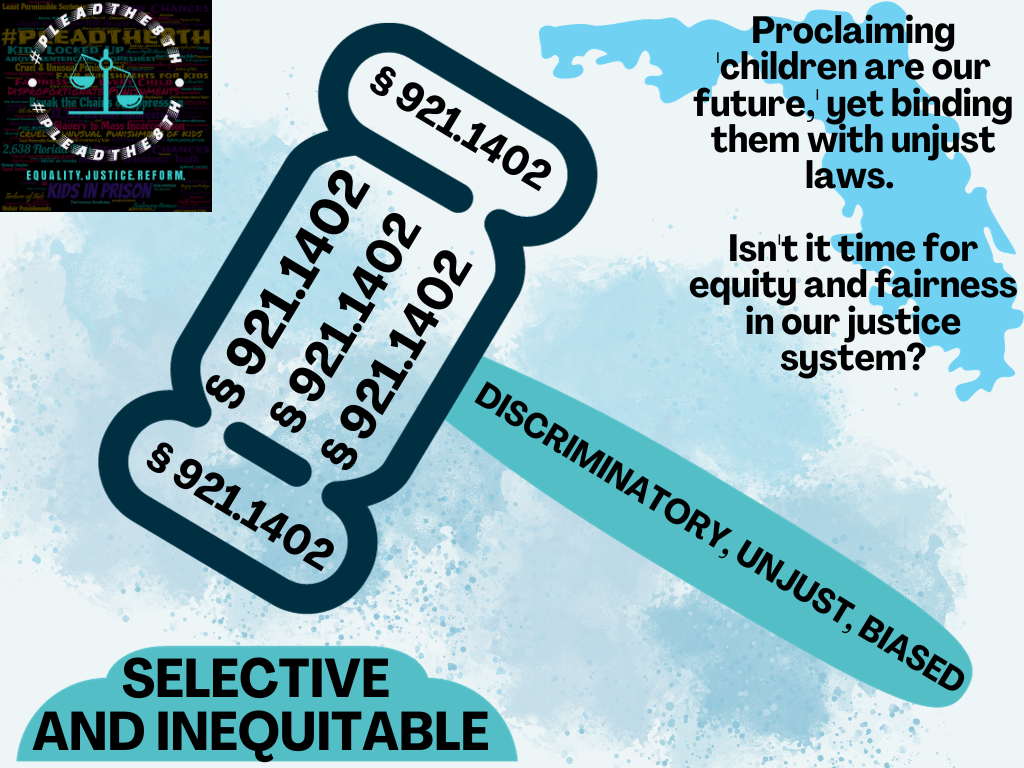
Transition & Reentry
Those sent to prison as children must have specific programming available to assist in their successful transition into society.
- Implementation of Pre-Release & Post-Release Programs specifically for those incarcerated as children.
- A 16-year-old going to prison for 20 years will have spent more time in prison than free.
- A 30-year-old sent to prison for 20 years will have spent more time free.
- Being sent to prison as a child differs greatly from when an adult is sent to prison.
- Transition and reentry services reduce recidivism.
Instead of getting the support they need in the communities they come from, young people are funneled through a system that is inhumane, unsafe, costly, and full of racial and ethnic disparities.
⬇ Charging Children as Adults
- Florida has led the U.S. in prosecuting children as adults, while Florida prosecutors choose to transfer children to adult courts.
- 98 percent of youth prosecuted in adult criminal court in Florida are sent there by a prosecutor via a process known as “direct file.”
- State law allows prosecutors to charge 14- and 15-year-olds in adult court for any one of 21 specified felonies, and 16- and 17- year-olds for any felony at all.
- The prosecutor's decision to send a child to adult court via direct file is not subject to judicial review and cannot be appealed.
- Florida is one of only 14 states that use direct file and only one of three that doesn’t give judges the ability to review cases transferred.
- In 2016, Florida direct filed more children than California, Texas, Pennsylvania, North Carolina, and Michigan combined.
- Black kids fare worse when it comes to being jailed as adults: 63% of youth who are direct filed are black — although black children make up only 22% of Florida’s public-school kids.
We must protect and treat our state's children fairly.
- Florida should provide a review of prosecutorial direct files of youth to adult court.
- Florida should only transfer children to adult court in rare instances of the most serious crimes.
More Black kids than white kids tried as adults in Florida | Miami Herald
Felony-Murder Rule
Pursuant to juvenile transfer laws and §782.04, a child may be convicted under the felony murder rule.
- Florida must abolish the felony murder rule for juveniles, which unjustly holds them accountable for homicide even if they did not personally commit the act of killing.
- This law, combined with juvenile transfer laws and §782.04, overlooks the fundamental principle that children have a distinct potential for reform and should not face severe adult penalties for actions they did not directly execute.
- It's imperative we adopt justice practices that acknowledge the developmental differences between youth and adults, emphasizing rehabilitation over punishment.
- Felony murder rule: Life in prison for a crime someone else commits (abcactionnews.com)
Ban Life Without Parole
- As of 2023, 28 states now ban life without parole sentences for children.
- A sentence of death or life imprisonment without the possibility of release or parole shall not be imposed on any person who at the time of the commission of the crime was less than 18 years of age. As to such a person, the maximum punishment that may be imposed is life imprisonment with the possibility of release.
Due Process Protections at Point of Entry for Kids
- There are no statutory protections in place requiring children to consult with their parents, legal guardians, or legal counsel prior to waiving their Miranda Rights or being subject to a custodial interrogation for proceedings in either juvenile or adult court.
Ban Mandatory Minimum Sentencing
- § 985.565 Sentencing powers; procedures; alternatives for juveniles prosecuted as adults.
- (4) SENTENCING ALTERNATIVES.— (a) Adult sanctions.—
- 3. Notwithstanding any other provision to the contrary, if the state attorney is required to file a motion to transfer and certify the juvenile for prosecution as an adult under s. 985.556(3) and that motion is granted, the court must impose adult sanctions.
- States should ban mandatory minimum sentences for juveniles to restore judicial discretion, ensuring sentences consider the unique circumstances and rehabilitation potential of young offenders.
- Such reforms recognize the developmental differences between children and adults, emphasizing rehabilitation over punishment.
- Children must be sentenced to the lowest permissible sentence.
- Laws should prohibit courts from sentencing children above mandatory minimums or above sentencing scoresheet guidelines.
Problems.
Florida Violates the Human Rights of Children
Florida confines 2,632 individuals who committed offenses as children, many of whom face disproportionately severe punishments. What's more, these individuals often lack opportunities for review or parole, perpetuating an unsettling cycle of injustice.
- In 1989, world leaders made a historic commitment to the world’s children by adopting the United Nations Convention on the Rights of the Child – an international agreement on childhood.
- The Convention on the Rights of the Child is the most rapidly ratified human rights treaty in history.
- More countries have ratified the Convention than any other human rights treaty in history – 196 countries have become State Parties to the Convention as of October 2015.
- Only the United States of America has not ratified the Convention. By signing the Convention, the United States has signaled its intention to ratify, but has yet to do so.
- The U.N. Convention on the Rights of the Child (CRC) and the International Covenant on Civil and Political Rights (ICCPR) require the human rights protections for children who come into conflict with the law.
- CRC Article 37: Children who are accused of breaking the law should not be killed, tortured, treated cruelly, put in prison forever, or put in prison with adults. Prison should always be the last choice and only for the shortest possible time. Children in prison should have legal help and be able to stay in contact with their families.
- CRC ARTICLE 39: States shall take measures to promote physical and psychological recovery and social reintegration of a child victim of: any form of neglect, exploitation, or abuse; torture or any other form of cruel, inhuman or degrading treatment or punishment; or armed conflicts.
- CRC Article 40: Children accused of breaking the law have the right to legal help and fair treatment. Prison should only be the last choice.
- ICCPR ARTICLE 10:• Accused juvenile persons shall be separated from adults and brought as speedily as possible for adjudication. • Juvenile offenders shall be segregated from adults and be accorded treatment appropriate to their age and legal status.
- ICCPR ARTICLE 14: • In the case of juvenile persons, the procedure shall be such as will take account of their age and the desirability of promoting their rehabilitation.
Florida's position in this regard is stark. It falls into Tier 4 – the lowest category – when assessed across 12 categories of law. This classification highlights Florida's concerning track record in upholding the human rights of children within the justice system.
Florida's juvenile justice system shows significant disparities in alignment with UNCRC principles. Issues like sentencing disparities and the treatment of juvenile offenders highlight areas where the system diverges from the convention's ideals.
Florida lawmakers must reform existing laws to align with human rights standards found in the United Nations Convention on the Rights of the Child and the International Covenant on Civil and Political Rights.
Changing Court Rulings
Florida §921.1402- Reviews for Juvenile Offenders- must be reformed.
The glaring disparities and inconsistent application of review mechanisms for juvenile offenders in Florida's legal system underscore the urgent need for reform.
Over the past decade, Florida's §921.1402, a statute enacted in 2014 in response to landmark U.S. Supreme Court decisions in Graham v. Florida (2010) and Miller v. Alabama (2012) on juvenile sentencing, has been mired in ambiguity and inconsistent application.
Courts have urged the Legislature to address critical issues in §921.1402 for over a decade.
Racial Disparities in Sentencing
Racial inequities in sentencing paint a distressing picture of Florida's legal system.
To achieve racial equity, we must transform the way the justice system treats youth of color from their first interaction with a police officer and in every part of the system.
- Florida judges impose sentences that are 68 percent longer for Black individuals compared to their white counterparts with identical circumstances. This issue extends beyond Florida's borders.
- Nationwide, a staggering 80% of the 32,000 individuals currently incarcerated since childhood are Black.
- In Florida, out of the 2,638 individuals imprisoned for crimes committed during their youth, a concerning 74.1% are Black or Brown.
- The stark contrast between demographics is evident when considering the state's overall population. While Blacks comprise only 17% of Florida's population, those of color disproportionately represent over 50% of the state's prison population.
- A poignant case, Graham v. Florida, brought to the United States Supreme Court, underscores the severity of these disparities. A Black child faced a life sentence without parole for a non-homicide offense, contrasting starkly with the state average of 5-10 years for the same crime.
- The justice system's tendencies toward disproportionate, excessive sentences for individuals of color are a harsh reality.
- Children, in particular, bear the brunt of these injustices, facing punishments that exceed mandatory minimums and sentencing scoresheet totals.
As we reflect on these realities, one question resounds: Is it justifiable to condemn a child to a life or 20-30-40-year sentence for a crime that merits only 5 years?
For an in-depth exploration of this pressing issue, we urge you to delve into the
"BIAS ON THE BENCH" report by the Sarasota Herald Tribune.
- This report illuminates the profound racial disparities in sentencing perpetuated by Florida judges.
- Despite these concerns being brought to light in 2016, nothing has been done for the individuals currently incarcerated with excessive, disproportionate punishments.
- This calls for urgent awareness and action.
Florida lawmakers must reform existing laws to align with human rights standards found in the United Nations Convention on the Rights of the Child and the International Covenant on Civil and Political Rights.
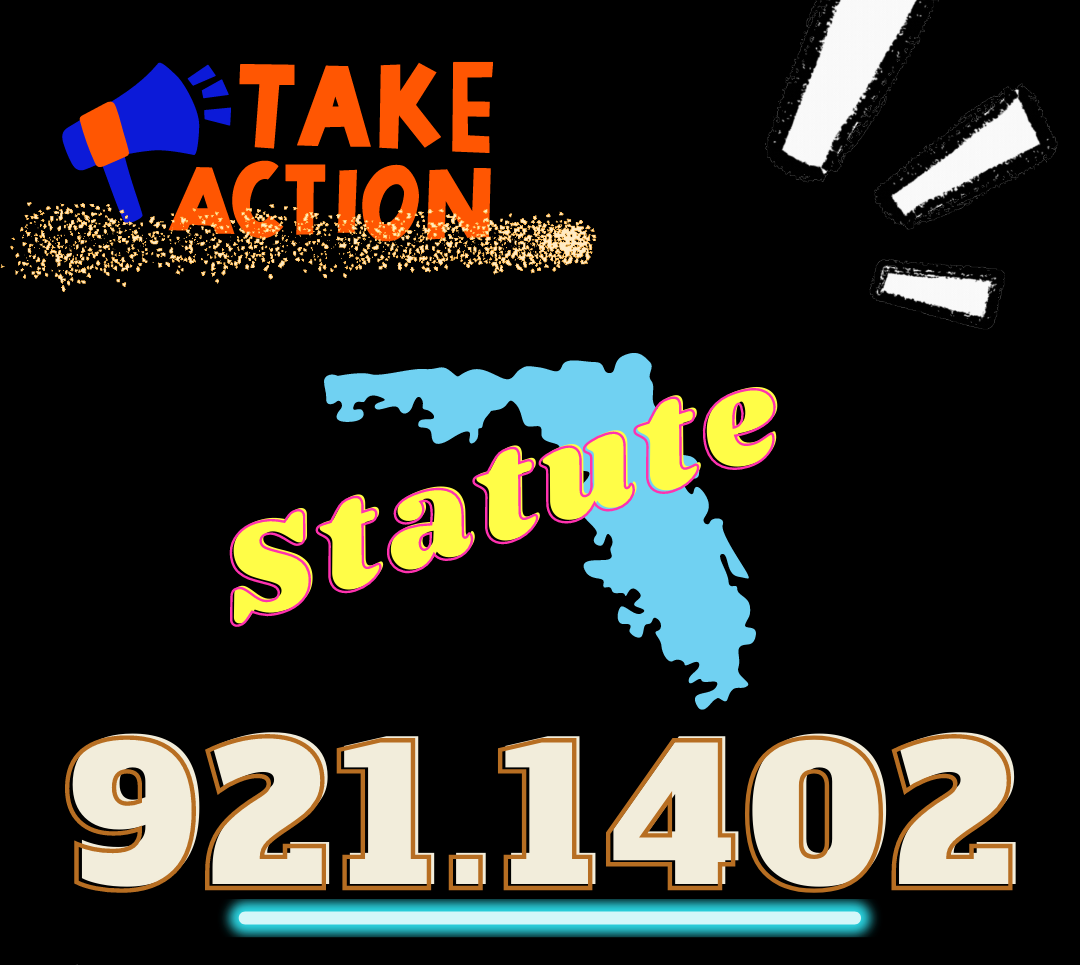
Call to Action:
Amend s.921.1402, to be inclusive of ALL KIDS being entitled to judicial reviews .
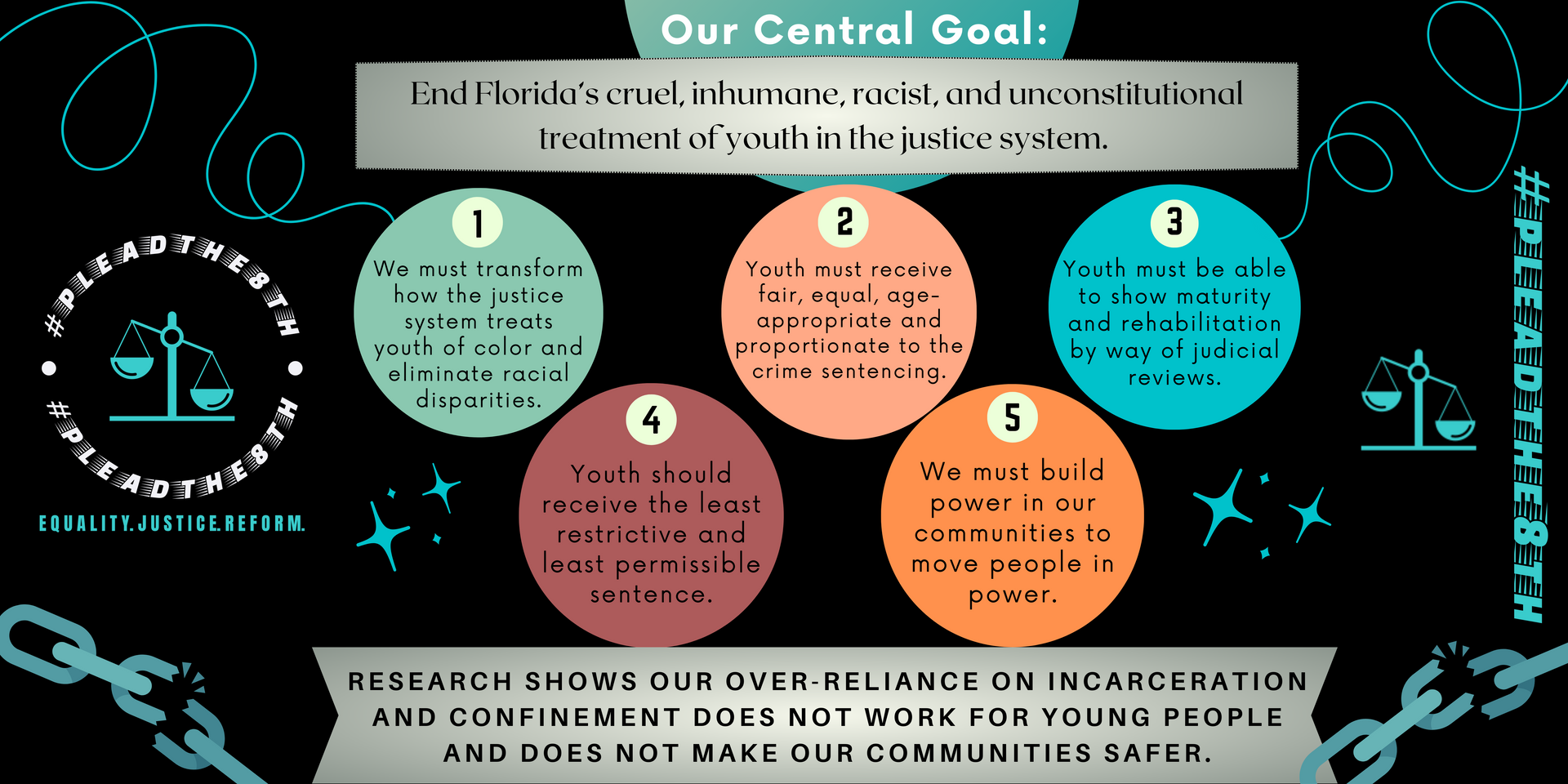
Youth Incarceration in Florida
Read court rulings and more about the injustices youth face in Florida.
Read more about the injustices youth face in the criminal justice system across the United States.
Your Support Matters
A gift today helps us fight for kids without a voice.
PleadThe8th
is a qualified 501(c)(3) tax-exempt organization and donations are tax-deductible to the full extent allowed under the law.
Follow us on Social Media!
Tweet & Share to remind those in power that we demand justice and equality.
